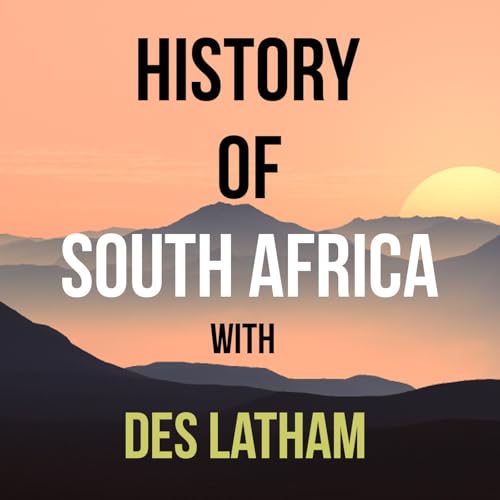
History of South Africa podcast
Failed to add items
Sorry, we are unable to add the item because your shopping cart is already at capacity.
Add to Cart failed.
Please try again later
Add to Wish List failed.
Please try again later
Remove from wishlist failed.
Please try again later
Adding to library failed
Please try again
Follow podcast failed
Please try again
Unfollow podcast failed
Please try again
-
Narrated by:
-
By:
-
Desmond Latham
Episodes
-
 Nov 30 202523 mins
Nov 30 202523 minsFailed to add items
Sorry, we are unable to add the item because your shopping cart is already at capacity.Add to Cart failed.
Please try again laterAdd to Wish List failed.
Please try again laterRemove from wishlist failed.
Please try again laterAdding to library failed
Please try againFollow podcast failed
Please try againUnfollow podcast failed
Please try again -
 25 mins
25 minsFailed to add items
Sorry, we are unable to add the item because your shopping cart is already at capacity.Add to Cart failed.
Please try again laterAdd to Wish List failed.
Please try again laterRemove from wishlist failed.
Please try again laterAdding to library failed
Please try againFollow podcast failed
Please try againUnfollow podcast failed
Please try again -
 Nov 16 202523 mins
Nov 16 202523 minsFailed to add items
Sorry, we are unable to add the item because your shopping cart is already at capacity.Add to Cart failed.
Please try again laterAdd to Wish List failed.
Please try again laterRemove from wishlist failed.
Please try again laterAdding to library failed
Please try againFollow podcast failed
Please try againUnfollow podcast failed
Please try again
Longform history
Something went wrong. Please try again in a few minutes.
Fantastic and necessary!
Something went wrong. Please try again in a few minutes.
On a personal note — As an immigrant to South Africa, I really appreciate the availability of this material as well as listening to his pronunciation of people, places and things relevant to South Africa.
Impressive
Something went wrong. Please try again in a few minutes.
"Don't shout at me folks. This is a series that is trying to deliver direct historical blows rather than quaint emotional propaganda. Your going to hear a lot more that may make you revise what you think of as part of our past."
Thank you Mr. Latham for your dedication to the truth and willingness to impart your extensive knowledge on others.
Fantastic Podcast
Something went wrong. Please try again in a few minutes.


